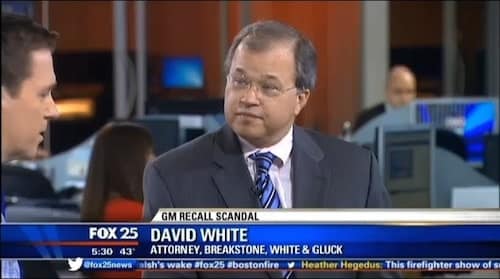Firm News
News Featuring the Boston Personal Injury Lawyers at Breakstone, White & Gluck, P.C.
The attorneys at Breakstone, White & Gluck frequently serve as sources for the print, radio and television media. Here is some recent news.

Attorney David White discusses GM auto recall on Fox 25 TV
Firm News 2020 - 2021 | Firm News 2016 - 2019 | Firm News 2013 - 2015
Firm News 2011 - 2012 | Firm News 2006 - 2010 | Firm News 2001 - 2005
